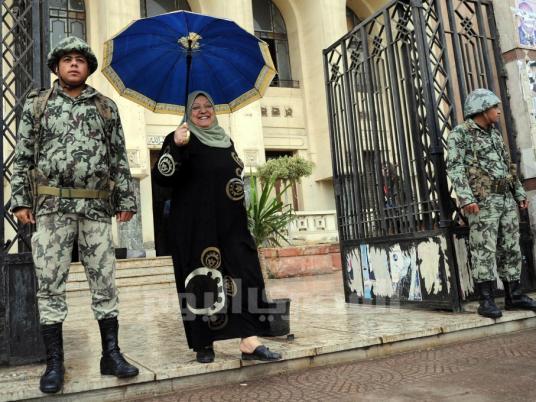
A senior member of the judiciary has cast doubts over Shura Council elections, saying that it’s not logical to hold elections that cost LE1 billion for a powerless council.
Saeed Mohamed, senior prosecutor, sent a letter to Abdel Moez Ibrahim, head of the High Judicial Elections Commission (HJEC), saying that he will not take part in supervising the second phase of the Shura Council elections because the council has no authority or legislative duties.
On Tuesday, the second phase of Shura Council elections will begin in 14 governorates. According to Yousry Abdel Kareem, an official at the HJEC, a total number of 11,230 judges and members of judicial bodies are participating in supervising both phases.
The Shura Council has no powers according to the constitutional declaration issued by Egypt’s military rulers last March.
“Egypt has been suffering from complicated economic problems, and experts warn of bankruptcy. Meanwhile, it has been announced that the budget allocated for Shura Council elections has reached LE1 billion,” Mohamed complained in his letter.
Mohamed added that he had always believed the Shura Council was futile. “This opinion is supported by the people, as voter turn-out in the first phase of council elections was very low.”
The first round of the elections, which was swept by the Muslim Brotherhood's Freedom and Justice Party (FJP), witnessed a turnout of only 15 percent. Turnout in the elections of the People’s Assembly was 60 percent.
Mohamed said that Shura Council “was established for three reasons; first, to satisfy members of the disbanded National Democratic Party across the governorates, who weren't selected by the party for the People’s Assembly. Secondly, membership in the Shura Council was meant to reward regime figures for the years they spent serving the regime. Membership in the council also provided retired regime figures with parliamentary immunity, so they could not be prosecuted.”




